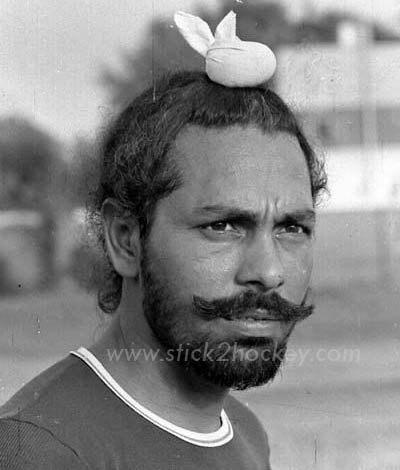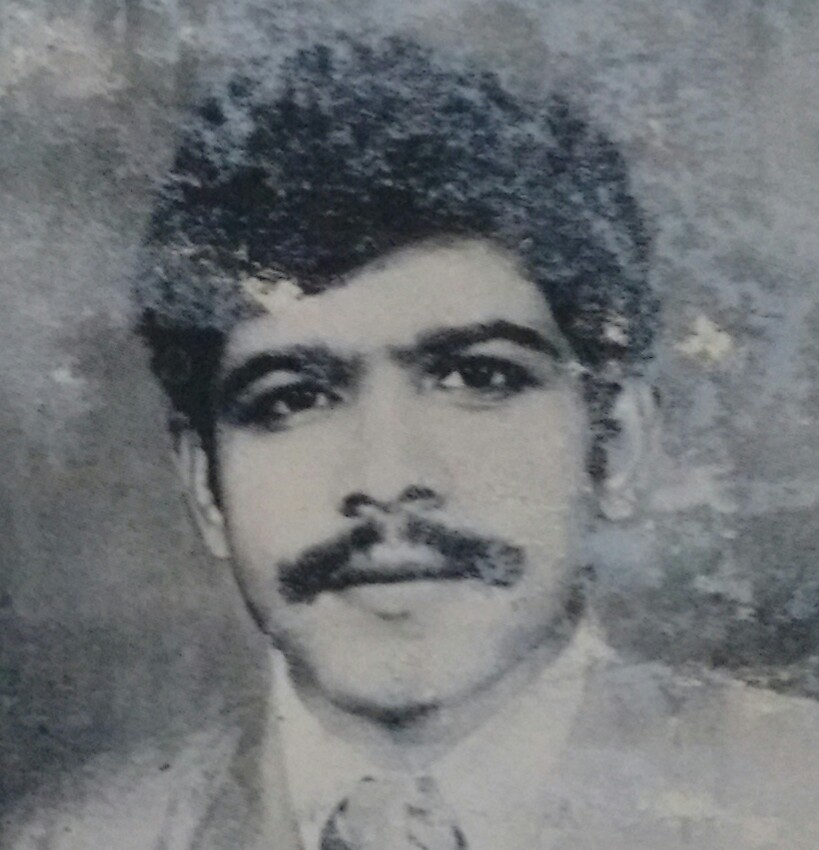K ARUMUGAM
He weighed 75 kg, carried a heavy stick weighing 28 ounces. His bullet-like strikes sounded the backboards like thunderclaps. Weaponry and ferocity combined to make him a match-winner.
He is Devinder Singh Garcha for you. Penalty-corner expert and indisputably a top defender of the late 1970s and early 1980s. He rivalled the immortal Surjit Singh and, by a quirk of fate, replaced him at the 1980 Moscow Olympics where India won their eighth, and last, gold medal.

Olympic gold medallist Devinder Singh Garcha. Pic: Ashok Vahie
Surjit Singh, some years senior and also a name that carried weight in those days, was pulled up for indiscipline at the Moscow Olympics camp in Bengaluru. The legendary Field Marshal Sam Manekshaw, who was then heading the All India Council of Sports, banned the iconic defender.
Surjit’s replacement was obvious. Whether he was aware or not, one man who envisioned the 28-year old Devinder to hold great potential was MP Ganesh, a former World Cup captain.
Ganesh took Devinder to his home and gave him a 30-minute motivational talk. He emphasised that the youngster should perfect his game if he wants to go further. “My outlook changed that day. I began to understand my strengths, weaknesses and the team’s need. I told him I am at his disposal,” says Devinder.
“Ganesh then trained me and the others in the penalty corner drill. The long drills and his supervision proved vital. We (the pusher, the stopper and me, the hitter) could reduce the entire penalty-corner process by a second which meant we could surprise goalkeepers and keep them rooted!”
The defender burned calories to shed 6-7 kgs of weight which he needed to.
“That’s why when I met him in Delhi during the 2012 Olympic team’s felicitation function, I touched Ganesh’s? feet. This surprised not just him but everyone else,” Devinder recollects.
“We all know penalty corners and the way we converted them in Moscow got us the gold medal. Most of the goals that went to the forwards were actually penalty strokes which we got as a result of forcing our rivals to commit an offence during their penalty-corner defence”. Surinder Singh Sodhi for instance scored many goals but most of them came from converting penalty strokes which we earned as a result of my penalty-corner strikes.”
Devinder played only three major tournaments in his brief but impactful international career (1979-1981). His goal count was 19 which includes seven in the 1980 Karachi Champions Trophy. This is simple creditable.
He was filled with gratitude for coaches but that didn’t mean he always saw eye-to-eye with them. Devinder had his own share of run-ins with coaches and foremost in that category is the highly lauded Balkishen Singh.

Asst. Coach for the Moscow Olympic Indian team MP Ganesh
“He was our coach in Moscow. He insisted we adopt the 4-4-2-1 formation while we trained with the traditional 5-3-2-1 all through. I am sure the team that won the gold medal in Moscow played our format out-and-out and could thus be successful.
“But often I felt jittery with the format and Balkishen’s blind insistence on it. Before the final, I could not get sleep. Got up at midnight and knocked the doors of Manager Dayanand, who was staying opposite our room. He was surprised that I was awake. I told him my concern. His reply was simple. “ ‘These things were decided in the meeting, and why do you bother now?’ ’’
Devinder continued: “As a matter of fact, I missed the meeting the manager had mentioned because it took about two hours for me to get cleared at the airport. The two pins I used on my head to hold my hair would cause a beeping sound each time I took the body security check! Getting an English interpreter to explain things took time and I missed the meeting.”
Niceties apart, it was one of Devinder’s penalty corner conversions that turned into a penalty stroke that helped India win a cliff-hanger of a final against Spain 4-3.
Devinder is sandwiched between Ajit Pal Singh and a Pakistan forward at Champions Trophy, Karachi (Pak)
His career did not blossom after the Moscow Olympics very much as things would turn out differently He was in the Mumbai World Cup camp when his mother suffered a paralytic attack. He sought a week’s leave which coach Harmik Singh would not grant.
The DAV College alma mater’s career that promised a lot and was cruising along for the home Asian Games was thus cut short.
“I was pressed to make a choice between my mother and hockey. I selected my mother,” reminisces the top Punjab Police officer.
Mithapur-based coach Sandhu Singh, who was then with the Government Model School in Jalandhar where Devinder did his schooling, was his ‘godfather’.
Devinder’s may have been a short international career but, in hindsight, a crucial and fruitful one for Indian hockey. His solid presence in the defence along with his penalty corner wallop were crucial factors in the Moscow Olympic gold medal triumph – something that kept Indian hockey alive and ticking in the wake of the horrors that unfolded at the 1976 Montreal Olympics and after.

